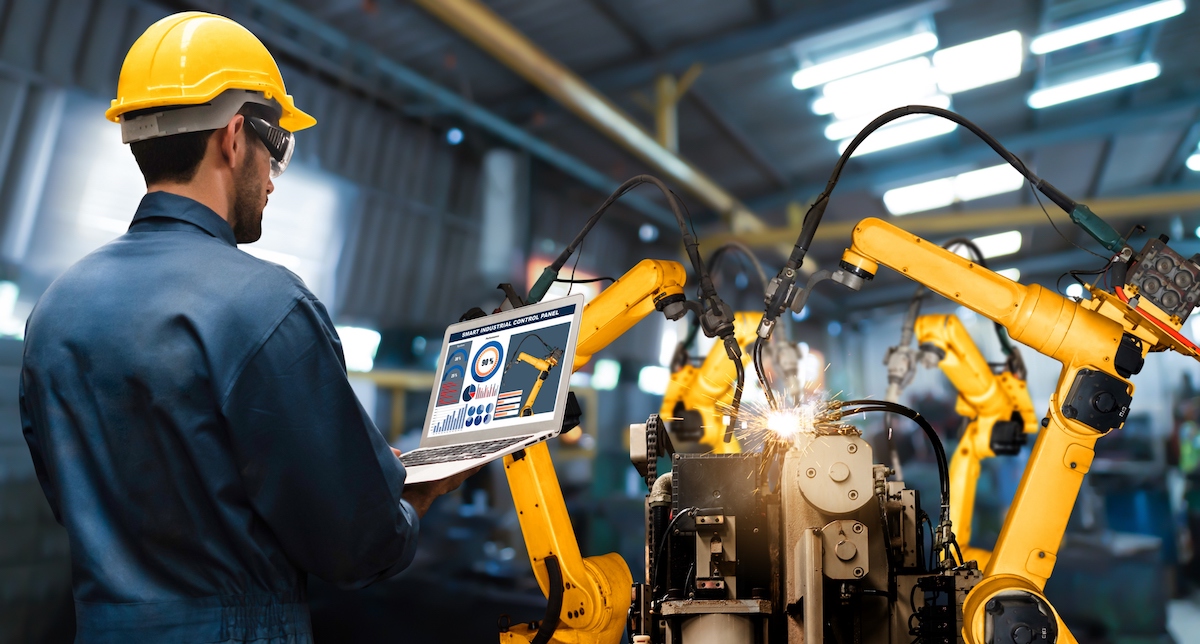The development of new ways to cool computers has improved how industrial mini PCs are designed. In tough industrial settings, passive cooling systems, which don’t require fans, are becoming more popular because they are reliable and need less maintenance. Recent innovations in cooling for mini industrial PCs include:
1. Better heat sink designs
2. Materials that change phases to absorb heat
3. Heat pipe technology
4. Cooling solutions made with graphene
These technologies help rugged mini computers work in hot environments without needing fans that could fail or make noise. This makes them perfect for smart manufacturing where durability and long-term use are crucial.
The need for compact industrial PCs has grown quickly. This trend is driven by:
1. Limited space on factory floors
2. The need to integrate with existing machines
3. The mobility required for certain tasks
While making computers smaller has its challenges—like ensuring they can handle harsh conditions without losing performance—the benefits of small format PCs in manufacturing are significant:
|
Benefit |
Impact on Manufacturing |
|
Space savings |
Increased production line efficiency |
|
Reduced power consumption |
Lower operational costs |
|
Improved flexibility |
Easier integration with various machines |
|
Enhanced portability |
Simplified maintenance and upgrades |
Edge computing is key in smart manufacturing because it allows data to be processed instantly, right where it's needed. Fanless mini PCs play a critical role in this by offering industrial low profile PCs that can be used directly on the factory floor. These rugged mini PCs are small, tough, and fit perfectly in industrial spaces.
Examples of rugged mini computers used for edge computing in smart factories include:
1. Real-time quality control systems
2. Predictive maintenance
3. Machine vision for detecting defects
4. Automated inventory management

Artificial Intelligence (AI) is becoming more important in manufacturing. Small industrial PCs equipped with powerful processors and specialized AI hardware are now able to run complex AI programs right on the factory floor.
For AI processing in industrial environments, industrial mini PCs require:
1. High-performance CPUs
2. Dedicated GPUs or AI accelerators
3. Lots of RAM and fast storage
4. Reliable cooling systems
In production environments, mini form factor PCs that use AI are successfully helping with:
1. Detecting anomalies in production lines
2. Optimizing energy use
3. Controlling robots more effectively
4. Improving supply chain management
Industrial mini PCs are essential for connecting equipment through Industrial IoT. They support key communication protocols such as:
1. OPC UA (Open Platform Communications Unified Architecture)
2. MQTT(Message Queuing Telemetry Transport)
3. PROFINET(Process Field Net)
4. EtherCAT(Ethernet for Control Automation Technology)
By supporting these protocols, small industrial PCs help factories integrate with existing systems, allowing for smooth communication between machines and networks.

Fanless mini PCs are used across various industries, with each having its own special needs:
|
Industry |
Application |
Key Features |
|
Robot control, quality inspection |
Rugged design, real-time processing |
|
|
Food and Beverage Processing |
Process control, traceability |
Sealed enclosures, easy to clean |
|
Pharmaceutical Production |
Precision control, data logging |
High reliability, regulatory compliance |
|
Aerospace and Defense |
Simulation, testing equipment |
High performance, security features |
While industrial grade computers offer many advantages, they also come with some challenges:
1. Reliability in harsh environments: Rugged mini computers must handle extreme temperatures, vibrations, and dust.
2. Performance vs. power efficiency: Mini form factor PCs need to provide strong performance while using less energy.
3. Security in connected systems: As small industrial PCs become more connected, cybersecurity becomes a major concern.
Exciting new technologies will shape the next generation of industrial mini PCs:
1. Advanced System-on-Chip (SoC) designs
2. New materials for better cooling
3. Modular designs for easier upgrades
4. Possible integration of quantum computing
Key trends in smart manufacturing that will affect industrial computing include:
1. Greater use of digital twins
2. Growth in collaborative robotics
3. Expansion of additive manufacturing (3D printing)
4. Use of blockchain for supply chain management
The role of mini industrial PCs in Industry 4.0 will continue to expand as these technologies evolve. With their small size, tough design, and advanced features, industrial mini PCs are essential for the future of manufacturing.
As smart manufacturing grows, the need for specialized, high-performance computing will only increase. Small industrial PCs are ready to meet this demand and help drive innovation in the manufacturing sector.
At BVS, we focus on producing reliable fanless mini PCs built for tough industrial environments. Our rugged mini computers are designed for smart manufacturing, offering quiet, low-maintenance performance even in high-temperature settings. Whether for edge computing, AI, or Industrial IoT applications, our compact industrial PCs deliver powerful, space-saving solutions. At BVS, we're committed to providing the technology that drives efficiency and innovation in modern manufacturing.

Click to confirm
Cancel